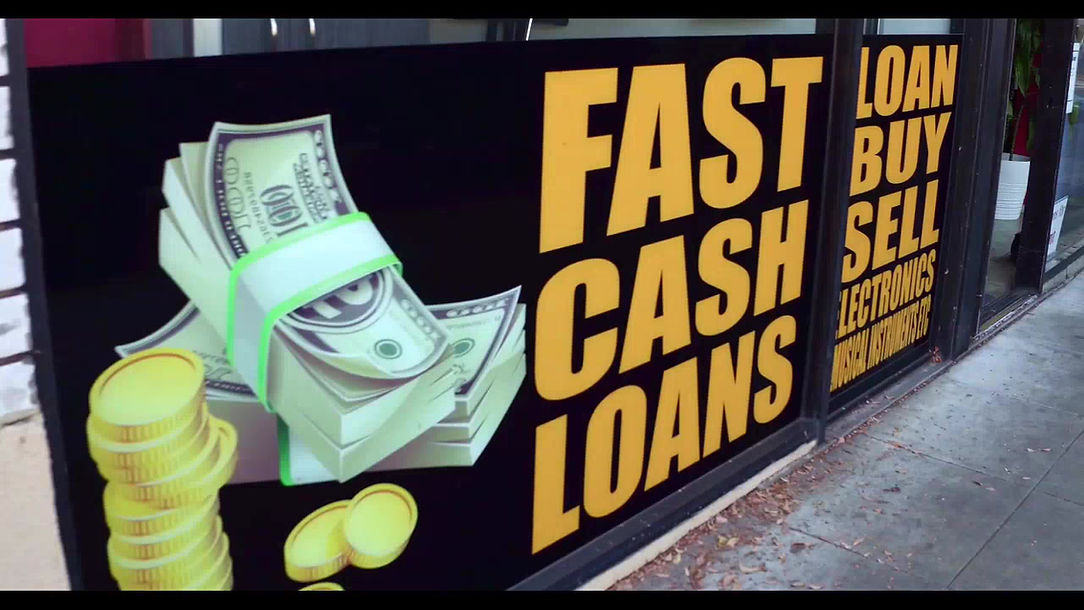Understanding Collateral Loans at Pawn Shops
- Smart Cash

- Jul 22, 2025
- 4 min read
Pawn shops have been a part of our financial landscape for centuries. They offer an alternative way to get quick cash through pawn shop loans. In this article, we'll explore what pawn shop loans are, how they work, their pros and cons, and answer a crucial question: Are collateral loans risky?

What Are Pawn Shop Loans?
Pawn shop loans operate on a simple premise. You bring a valuable item to a pawn shop, and the pawn broker offers you a loan based on the item's value. This item acts as collateral, safeguarding the loan until it is repaid. If you're unable to repay the loan, the pawn shop keeps the item and can sell it.
Common items that can serve as collateral include jewelry, electronics, instruments, and collectibles. The amount you can borrow typically ranges from a few dollars to several thousand, depending on the item’s appraised value.

How Pawn Shop Loans Work
The process for obtaining a pawn shop loan is straightforward:
Item Evaluation: When you arrive at the pawn shop, a broker evaluates your item. They consider the item's condition, market demand, and resale potential to determine its value.
Loan Amount: Based on this evaluation, a loan amount is decided. Pawn shops usually offer a percentage of the item's value, generally around 25% to 60%. For example, if your item is valued at $1,000, you might receive a loan offer of $250 to $600.
Agreement: After accepting the loan offer, you sign an agreement that outlines the loan terms, including the interest rate, payment schedule, and any fees.
Loan Duration: Most pawn loans have a term ranging from 30 to 90 days. During this period, you can repay the loan without losing your item.
Repayment: If you pay back the loan within the agreed timeframe, you receive your item back. If not, the pawn shop is legally allowed to sell your item.
Pawn shop loans are particularly appealing for their speed and convenience. There is no lengthy credit check, and you get cash almost immediately.

Are Collateral Loans Risky?
Collateral loans, such as those provided by pawn shops, carry certain risks. Understanding these risks can help you make informed decisions.
Loss of Item: The biggest risk comes if you are unable to repay the loan. Failing to do so means the pawn shop keeps your item and sells it. Unlike other loans, you cannot reclaim the item once it’s sold.
High-Interest Rates: Pawn shops often charge high-interest rates compared to traditional lenders. Make sure to read the loan agreement carefully to understand total costs.
Loan Amount vs. Item Value: Sometimes the loan amount offered may not be enough to meet your needs, especially if the item is undervalued. Ensure that you agree on a fair evaluation before finalizing the loan.
Impact on Credit Score: Unlike bank loans, pawn shop loans generally do not impact your credit score. However, if your item is valuable and you want it back, consider whether you can pay the total amount on time.
While there are risks, many find that pawn shop loans are a convenient solution for unexpected financial issues. If you’re in a tight spot, they offer a way to obtain cash quickly without extensive paperwork.
The Pros and Cons of Pawn Shop Loans
Understanding both the advantages and disadvantages of pawn shop loans can help you decide if they are the right option for you.
Pros
Quick Access to Cash: One of the main benefits is the ability to get cash quickly without long waiting times.
No Credit Checks: Since the loan is secured with collateral, you don’t need to worry about your credit score.
Reclaim Your Item: As long as you repay the loan on time, you can get your item back.
Flexible Terms: Loan terms can vary, giving you options that may work better for your financial situation.
Cons
High-Interest Rates: Interest rates can be significantly higher than traditional loans, leading to a greater overall cost if the loan is not repaid promptly.
Risk of Losing Your Collateral: If you fail to repay, you lose your item.
Not a Long-Term Solution: Pawn shop loans typically aren't designed for long-term financial needs.
Item Depreciation: As time goes on, your item may lose value, affecting your ability to pawn it for sufficient cash in the future.
Assessing these pros and cons can help you understand whether a pawn shop loan aligns with your financial needs.
Tips for Using Pawn Shop Loans Responsibly
If you decide to use a pawn shop loan, consider these tips for responsible usage:
Evaluate Your Item: Before going to the pawn shop, do some research to understand your item’s market value. Knowledge will help you negotiate better terms.
Read the Fine Print: Understand all terms in your loan agreement to avoid surprises later. Pay special attention to interest rates and fees.
Only Borrow What You Can Afford to Repay: Determine beforehand how much you will need and ensure that you can comfortably repay the loan within the loan period.
Keep Track of Loan Dates: Set reminders for repayment dates to avoid missing them, as late fees can accumulate quickly.
Consider Alternatives: Before resorting to a pawn shop loan, think about whether other financial options (e.g. borrowing from friends or family, personal loans) are available to you.
By following these tips, you can minimize risks and manage your pawn shop loan effectively.
In Summary: Making Informed Financial Decisions
Pawn shop loans can be a practical and swift solution for financial emergencies. While they offer immediate cash without the need for credit checks, understanding the terms and risks is crucial.
If you find yourself in a tight spot, don't shy away from exploring different loan options, including collateral loans at pawn shops. As with any financial decision, knowledge and preparation are your best friends in navigating the lending landscape wisely.


























Comments